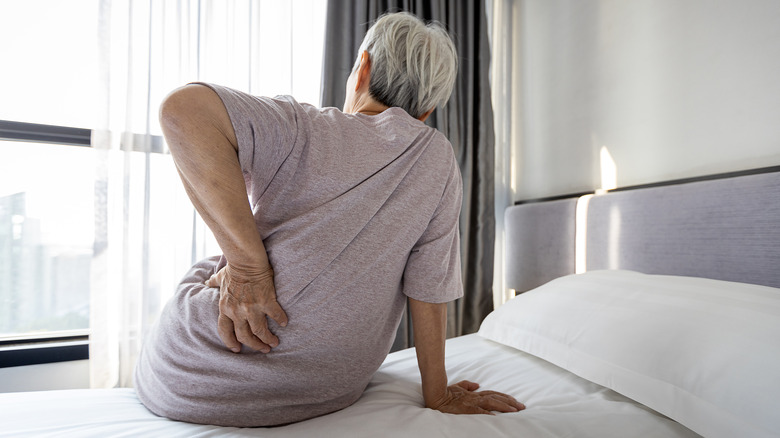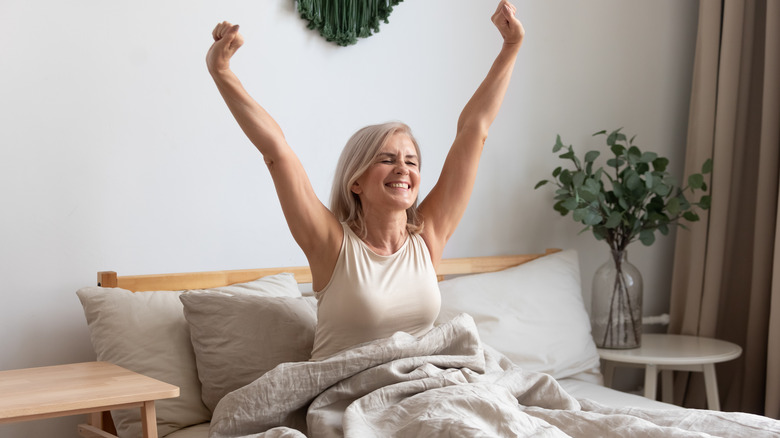The Real Reason Older People Wake Up Earlier
"Early to bed and early to rise makes a man healthy, wealthy, and wise," said Ben Franklin.
As much as praise has been heaped on early birds throughout history, the very existence of early birds in comparison to night owls can be a bit of an enigma to some. Even more mysterious is the tendency for early birds to skew older instead of younger.
A study conducted by Withings using data from its sleep products found that on average, older people wake up at 7:25 a.m. while younger people wake up at 8:17 a.m. Part of this may be because older people tend to go to sleep earlier as well, at around 11:23 p.m. compared to 12:20 a.m., but a person may still wonder why younger and older people have such different sleep patterns to begin with. Older people also spend less time in deep sleep, and wake up more often in the middle of the night, according to the U.S. National Library of Medicine.
The role of circadian rhythms and hormones
It turns out that much of the difference in sleep patterns can be pinned down to circadian rhythms and hormones. According to the National Institute of General Medical Sciences, circadian rhythm refers to the changes that happen to your mind and body over a 24 hour cycle. Your circadian rhythm will affect your energy levels throughout the day, and eventually when you get sleepy and want to go to bed. This is because the circadian rhythm influences the release of melatonin, the hormone that makes a person tired.
The Sleep Foundation notes that circadian rhythm is latest during adolescence and then gradually progresses earlier from there. Starting in middle age, a person's circadian rhythm starts to shift earlier by about half an hour per decade. Part of this is because as people get older, their bodies start to produce less melatonin, which causes them to wake up earlier in the morning.
Another possible reason is that older people's eyes don't let in as much light, which also plays a critical role in regulating circadian rhythm. For this reason, the Sleep Foundation recommends that older people who are struggling with their sleep patterns get more light during the day and evening.


